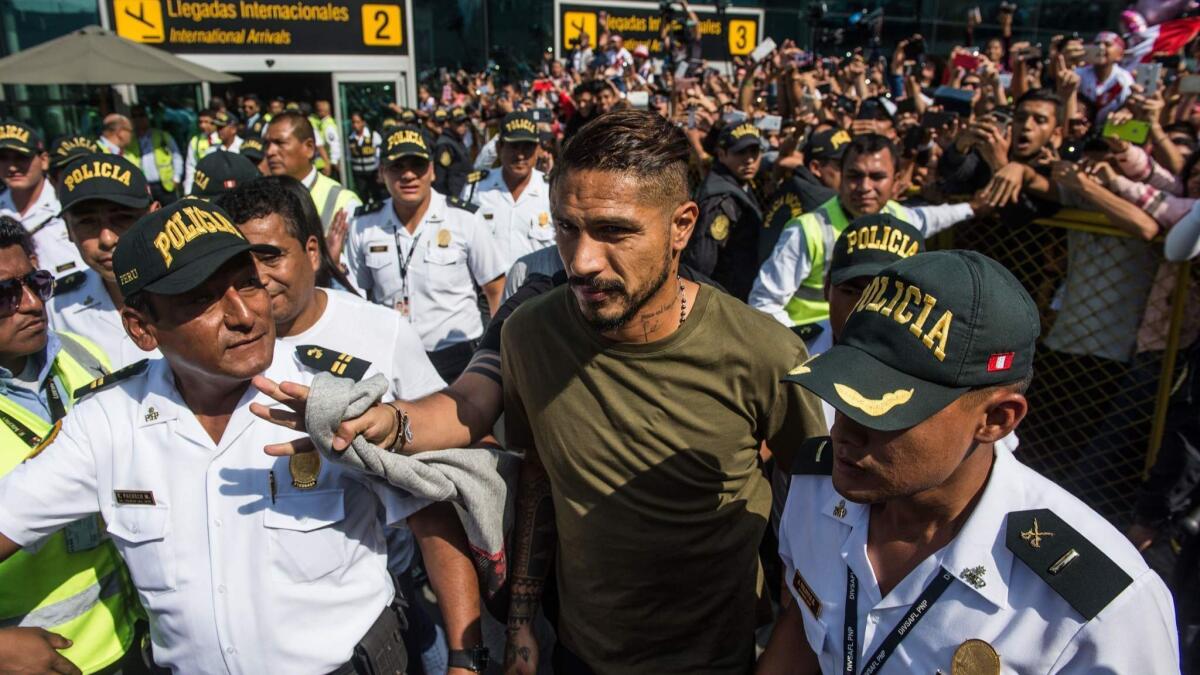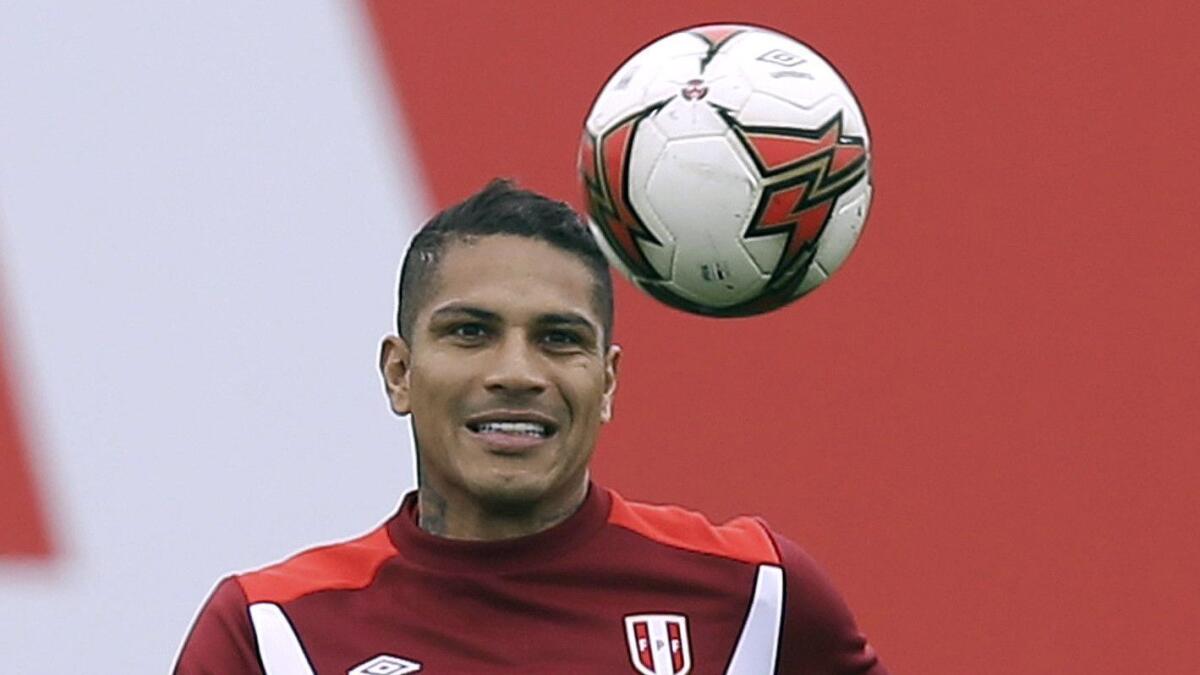Wave of anger spreads across Peru after star soccer player’s coca tea leads to World Cup ban

The sipping of an aromatic tea made from coca leaves — a centuries-old tradition in Andean countries — has cost Peru’s national soccer team its star player in the coming World Cup in Russia, a suspension Peruvian fans and officials called unjust and disproportionate.
Paolo Guerrero, 33, is the national team’s leading scorer and captain and was instrumental in Peru’s qualifying for the World Cup for the first time since 1982. The player said he was given the drink by a waiter at a hotel in Lima in October and did not know it was te de coca, a beverage made with coca, a banned substance.
Tea made from coca leaves ground into powder is a legal, traditional drink in the Andean region and is used as a light stimulant like coffee or to counter the effects of altitude sickness. The drink is made from the same base material as cocaine but is not nearly as concentrated.
In its Monday ruling, the Court of Arbitration for Sport based in Lausanne, Switzerland, said Guerrero “was culpable or negligent … and should have taken measures to avoid committing an anti-doping violation.” The court extended Guerrero’s original suspension of six months, which he had completed this month, to last through 2018.
The court said it decided to do so after the Montreal-based World Anti-Doping Agency filed a brief in the case arguing for a longer suspension.
Guerrero’s attorney Pedro Fida issued a statement Tuesday on his social media account slamming the ruling as “weak” and “inconsistent.”
“The ruling shows the anti-doping rules to be contradictory and disproportionate. It verified that Guerrero didn’t use social drugs and didn’t have a goal of improving his performance,” Fida wrote. Those circumstances, he said, should have led the court to let Guerrero stay on the team.
The court’s decision means Peruvian coach Ricardo Gareca must reconfigure the squad just one month before the World Cup opening ceremony in Moscow’s Luzhniki Stadium on June 14. The Peruvian team faces stiff first-round competition in a group that includes France, Denmark and Australia.

“Of course the loss of its best player, symbol and captain is going to affect the Peruvian team,” Lima TV sports journalist Eddie Fleischman said. “But the scenario of a Cup without Paolo must have been planned for and one for which the coaching staff has been preparing. What’s required is a reshaping of the team, and Gareca is good at that.”
The Peruvian Football Federation said Tuesday that it “profoundly regretted” the court’s decision and that Guerrero has always showed “exemplary conduct.”
Guerrero said in a statement Monday that he had never taken illegal drugs and that he has “always been a professional in every sense.” He was “living in a dark time.”
“I was observing the regimen of [the Peruvian Football Federation] and I drank a tea that the waiter should not have given a professional player,” Guerrero said. “What has not been proven is how can they ban me from the World Cup with no justification or debate?”
Upon his arrival at the Lima airport Monday night from Brazil, where he plays for the Flamengo soccer team, the popular Guerrero was met by dozens of supporters.
Lima taxi driver and fan Jaime Romero, 36, called Guerrero’s exclusion from the World Cup unjust. “It was thanks to him that this team classified [due to] his tenacity and solidarity,” Romero said.
“Last night we cried in my house,” fan Jazmin Orellana, a 36-year-old bank cashier, said Tuesday. “To good people, unjust things happen. Paolo, we are with you always.”
Leon is a special correspondent. Special correspondent Chris Kraul in Bogota, Colombia, contributed.
More to Read
Start your day right
Sign up for Essential California for news, features and recommendations from the L.A. Times and beyond in your inbox six days a week.
You may occasionally receive promotional content from the Los Angeles Times.






